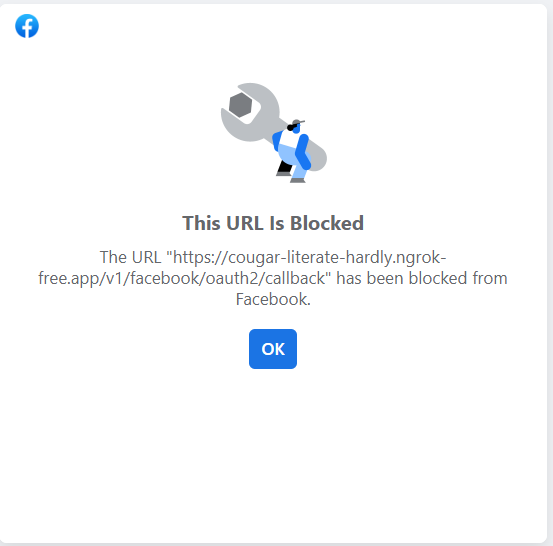Facebook meta developer blocked ngrok? Error Message "URL Blocked"
I have developed a Meta app and I am encountering an error after successful authentication. During the callback got this type of error that they have blocked my url. 
I have not engaged in any illegal activities. Despite trying different devices and URLs, I still receive the same error: 
It seems that Meta is blocking URLs from ngrok and other similar platforms. I am unsure how to resolve this issue.
Has anyone faced a similar problem or have any suggestions on how to proceed? Are there any specific precautions or configurations I should be aware of to avoid this issue?